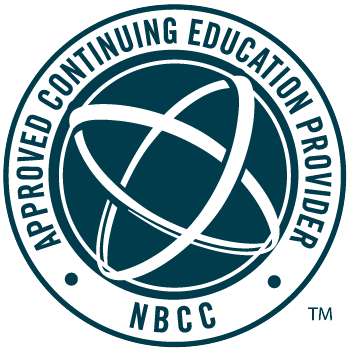
Behavioral Treatments for Alcohol Use Disorder: Strategies to Reduce Risks
-
Register
- Administrative Staff - Free!
- Counselor (CAADE, CADTP, CCAPP, LPC, LMHC NCC, etc.) - Free!
- PhD - Free!
- Nurse (MSN, LPN, RN, LVN) - Free!
- Nurse Practitioner (APRN, DNP) - Free!
- Pharmacist (PharmD) - Free!
- Physician (MD) - Free!
- Physician (DO) - Free!
- Physician (MBBS) - Free!
- Physician Associate (PA-C) - Free!
- Psychologist (PsyD) - Free!
- Social Worker (MSW, LCSW, LGSW) - Free!
- Student/Resident/Fellow - Free!
- Other - Free!
Behavioral Treatments for Alcohol Use Disorder: Strategies to Reduce Risks
Host: National Council for Mental Wellbeing
Recorded: August 22, 2024
Enduring Training
Overview
This webinar discusses strategies to reduce the risk of harm from alcohol use and motivational interviewing techniques to address alcohol use disorder (AUD).
This course offers NBCC Contact Hours and NAADAC CE Credits.
The target audience for this intermediate level activity includes: Prescribers of all types
Learning Objectives
Upon completion, learners will be able to:
- Describe the current state of AUD and barriers to treatment.
- Discuss the evolution of strategies and services to reduce risks associated with alcohol use.
- Review techniques to reduce the risks associated with alcohol use for patients with AUD.
- Examine the benefits of motivational interviewing and stages of change for AUD.
Open Registration: 08/01/2024 - 08/01/2027
Close Access Date: 09/01/2027
Instructions
- Click on the Contents tab to begin this activity.
- Click View Course to complete the enduring training.
- Click Complete GPRA Evaluation to complete the SAMHSA GPRA Survey.
- Click Complete Evaluation to provide valuable activity feedback. Scroll down on all questions as there may be answer options that expand past the size of the window.
- Click Complete Evaluation - Presenters to provide valuable presenter feedback. Scroll down on all questions as there may be answer options that expand past the size of the window.
- Click the button Claim Medical Credits in the box titled Claim Credit & Certificate. Choose the type of credit and click submit. Click the button View/Print Certificate to save or print your certificate.
Need Assistance?
For assistance logging in, accessing activities, claiming credit, or for other questions or concerns, please check the FAQ page, or contact pcssmaud@asam.org.
Pam Pietruszewski, MA
Senior Advisor
National Council for Mental Wellbeing
Kelly Ramsey, MD, MPH, MA, FACP, DFASAM
Addiction Medicine and Harm Reduction Consultant
Accreditation & Credits
Credits Available
- NBCC Contact Hours
- NAADAC CE
- CAADE, CADTP, CCAPP CE
This activity is not eligible for credits for other professions
National Board for Certified Counselors ACEP
This activity offers 1 NBCC contact hour.

American Society of Addiction Medicine has been approved by NBCC as an Approved Continuing Education Provider, ACEP No. 7062. Programs that do not qualify for NBCC credit are clearly identified. American Society of Addiction Medicine is solely responsible for all aspects of the programs.
NAADAC, The Association for Addiction Professionals
This course has been approved by the American Society of Addiction Medicine (ASAM) as a NAADAC Approved Education Provider, for 1 CE. NAADAC Provider #295, the American Society of Addiction Medicine (ASAM) is responsible for all aspects of its programing.
California Association for Drug/Alcohol Educators (CAADE)
This educational program is approved by CAADE: #CP40 999 1225.
California Association of DUI Treatment Centers (CADTP)
This educational program is approved by CADTP: #205.
California Consortium of Addiction Programs and Professionals (CCAPP)
This educational program is approved by CCAPP: #OS-20-330-0227.
Certificates for other professions
All participants may request a certificate of participation upon completion of the activity and an online evaluation confirming their participation. Learners are strongly advised to contact their professional licensing board or professional association to confirm this certificate will be accepted as evidence supporting continuing education requirements.
Disclosure Information
In accordance with the disclosure policies of ASAM and Joint Accreditation, the effort is made to ensure balance, independence, objectivity, and scientific rigor in all accredited continuing education activities. These policies include identifying and mitigating all relevant financial relationships with ineligible companies for those involved in the creation and dissemination of accredited continuing education.